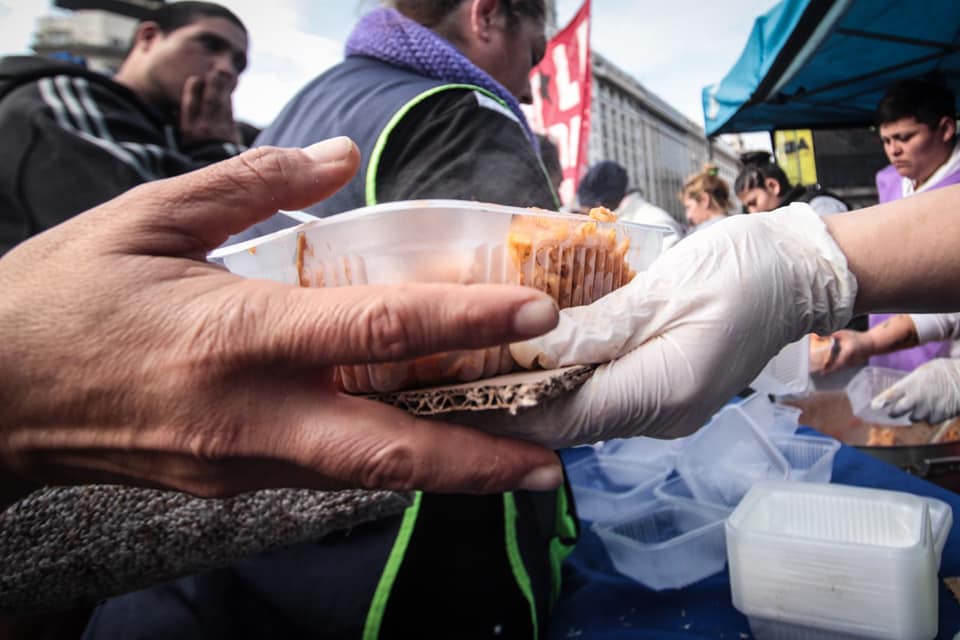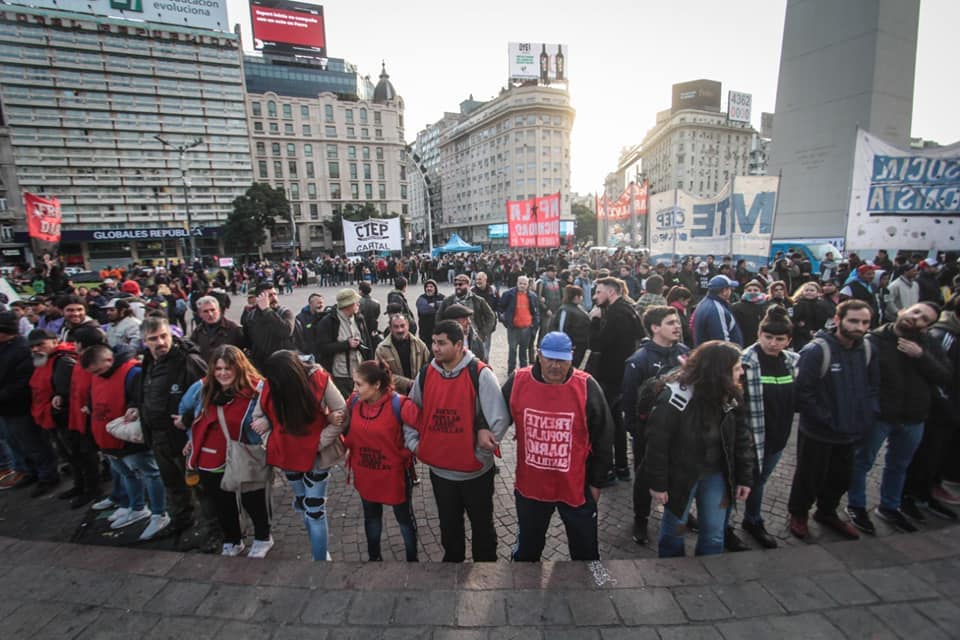On July 9, the Police in Buenos Aires, Argentina violently repressed activists who were setting up a tent in the center of the city to provide temporary housing to people experiencing homelessness. The police prevented the volunteers from unloading mattresses from trucks, launched tear gas at them and arrested two people.

The installment of the tent was part of a larger day of solidarity action at the Obelisk national monument under the banner of “The street is not a place to live.” The day of action was organized by social movements and organizations part of the Confederation of Popular Economy Workers (CTEP), together with Proyecto 7, an organization made up of people experiencing homelessness, with the intention to provide shelter and food to people in need.
The organizations called on social activists, solidarity groups and the general population to donate food, warm clothes, blankets and mattresses for those people who are suffering from hunger and cold weather. At the monument, the organizations organized a people’s pot [community canteen] and served food to thousands of needy people.

“We had asked to organize a tent, to be able to provide shelter at least 50 people who are dying of cold in the streets, as a private shelter and a measure of protest against the lack of public policies, for the terrible situation that a lot of families without a roof are living in,” said Juan Grabois, leader of the Excluded Workers’ Movement (MTE), part of the CTEP. “At the Obelisk, they want to repress solidarity,” he tweeted later, condemning the police repression.
Last week, the same group of social organizations released a report on a census conducted in the month of April on the situation of homelessness in Buenos Aires. Their report had stark differences with the one released by the Deputy Governor of the capital city. The report by social organizations revealed that there are about 7,251 people are living on the streets, whereas, the one by government authorities quoted only 1,141. The report also revealed that the number of people living in the streets has increased by over 23% in the last two years, whereas, the government recorded an increase of only 5%.
The report highlights that out of the 7,251 people experiencing homelessness, 5,412 people live and sleep in the outdoors, 870 are children and 1,600 people are living on the streets for the first time.
During the past two weeks, in Argentina, at least six homeless people have died from hypothermia, facing temperatures as low as 2 degrees Celsius or 35 degrees Fahrenheit. The deaths and the contrast in the two reports clearly show that the homeless people are not a priority for the government of President Mauricio Macri.
The report also drew attention to how the neoliberal economic policies of the right-wing government of Cambiemos party have aggravated the living conditions of the most vulnerable sections of the society.
Argentines are demanding that the national government take responsibility for the deaths due to homelessness and cold weather and provide definite solutions for the same.
Meanwhile, in response to the harsh conditions, the social organizations decided to do what the government should be doing. Since last week, several social organizations such as Red Solidaria, the MTE, Proyecto 7, Frente Popular Darío Santillán, the People’s Movement the Dignity, among others, have opened the doors of their organization to give shelter to the homeless people in Argentina.
In addition, the family restaurant of the famous Argentine footballer Lionel Messi in the city of Rosario has been providing hot food and drinks to homeless people since July 5. Many football stadiums have also opened their spaces for these needy people.
The day of solidarity at the Obelisk coincided with the 203rd anniversary of Argentina’s Independence Day which was celebrated in Buenos Aires with a heavy militarized parade. Argentina’s independence from Spain was declared on July 9, 1816, but, with yesterday’s incident of state repression and the current economic and social crisis in the country, one is forced to wonder when the working-class people will have true independence and dignity.





